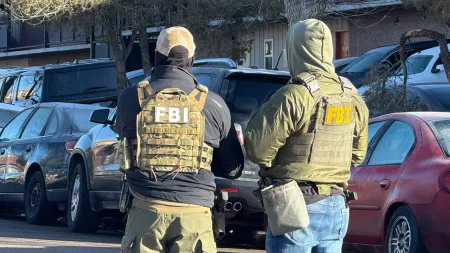The global effort to vaccinate children against preventable diseases has encountered significant obstacles, leaving a substantial portion of the world’s youngest generation vulnerable to potentially life-threatening illnesses. These challenges are multifaceted, encompassing logistical hurdles, socioeconomic disparities, misinformation campaigns, and conflict-related disruptions, creating a complex web of factors that hinder widespread vaccine access and uptake. The consequences of this under-vaccination are dire, as it not only jeopardizes individual children’s health but also weakens herd immunity within communities, increasing the risk of outbreaks and resurgence of diseases previously thought to be under control. Understanding these challenges is crucial to implementing effective solutions and ensuring that all children have the opportunity to benefit from the life-saving power of vaccines.
One of the most prominent challenges in reaching children with vaccines is the logistical complexity of immunization campaigns, particularly in resource-limited settings. These difficulties often include inadequate infrastructure for vaccine storage and transportation, which is essential for maintaining vaccine efficacy, especially in areas with limited access to reliable electricity or cold-chain systems. Furthermore, reaching remote and marginalized communities presents a significant hurdle, as geographical barriers and limited transportation options can make it difficult for healthcare workers to access these populations. These logistical constraints are often compounded by a shortage of trained healthcare professionals, particularly in rural areas, hindering the efficient administration of vaccines and contributing to the gap in immunization coverage.
Socioeconomic disparities further exacerbate the problem of vaccine access. Families living in poverty often face significant financial barriers to accessing healthcare services, including vaccines, which can be prohibitively expensive for some. Additionally, limited health literacy and awareness within communities can contribute to vaccine hesitancy and refusal, as misinformation and misconceptions surrounding vaccine safety and efficacy can easily spread in the absence of reliable information sources. Cultural beliefs and practices can also influence vaccine uptake, and addressing these concerns sensitively and respectfully is essential for building trust and promoting vaccine acceptance.
The spread of misinformation and anti-vaccine sentiment poses a significant threat to global vaccination efforts. Misleading information about vaccine safety and efficacy, often disseminated through social media and other online platforms, can fuel anxieties and erode public trust in vaccines. This misinformation can lead to vaccine hesitancy or outright refusal, jeopardizing the progress made in combating preventable diseases and putting communities at risk of outbreaks. Combating this misinformation requires a concerted effort from health authorities, healthcare professionals, and community leaders to provide accurate and evidence-based information about vaccines and address public concerns effectively.
Conflict and political instability in many regions of the world present another significant obstacle to vaccination programs. In conflict zones, healthcare systems are often severely disrupted, making it challenging to deliver vaccines to children in need. Displacement and migration resulting from conflict can further exacerbate the problem, as displaced populations may lack access to essential healthcare services, including immunization. Furthermore, in some conflict-affected areas, vaccination campaigns may be deliberately targeted by armed groups, undermining efforts to protect children from preventable diseases and creating further instability.
Addressing the complex challenges that hinder vaccine access and uptake requires a multi-pronged approach involving strengthening healthcare systems, improving vaccine delivery strategies, tackling misinformation, and addressing socioeconomic disparities. Investing in robust cold-chain infrastructure and transportation networks is essential for ensuring vaccine efficacy and reaching remote communities. Training and deploying more healthcare workers, particularly in underserved areas, can significantly enhance the capacity to administer vaccines efficiently. Community engagement and education are crucial for building trust, addressing vaccine hesitancy, and promoting vaccine acceptance. Tailored communication strategies that consider cultural sensitivities and address specific community concerns can help promote vaccine confidence and encourage uptake. Furthermore, international collaboration and coordination are essential for ensuring equitable access to vaccines and supporting countries in strengthening their immunization programs. Addressing these challenges collectively is paramount to protecting the health and well-being of children worldwide and achieving the goal of eradicating preventable diseases.










